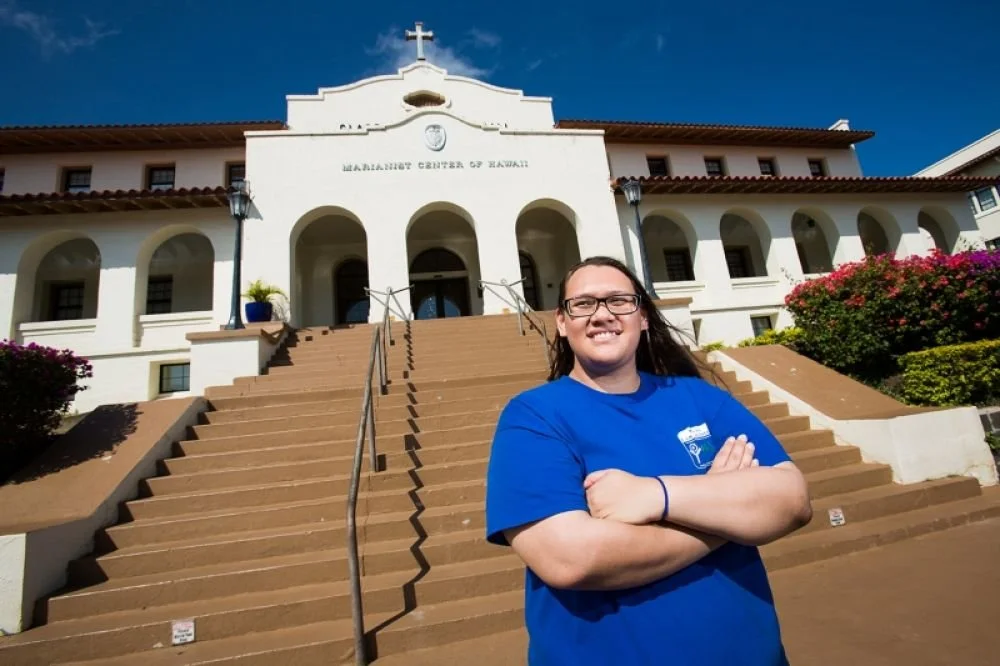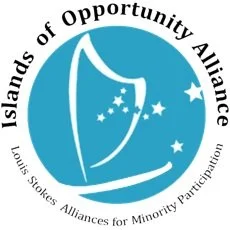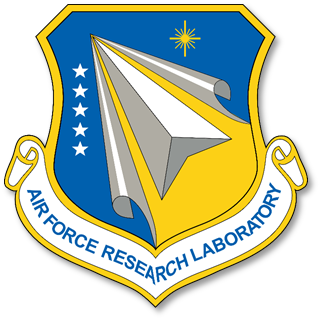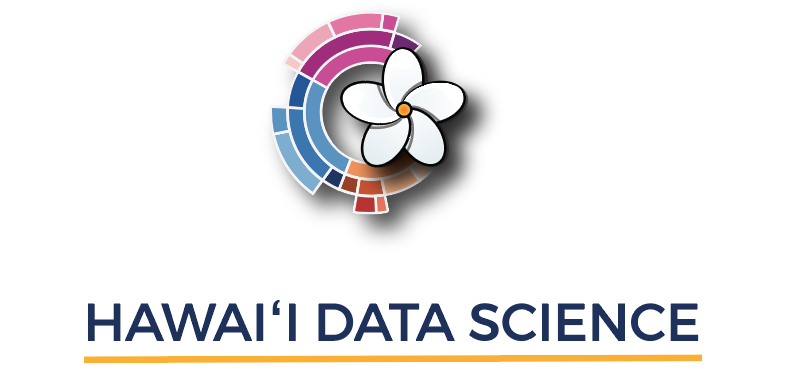ALL-SPICE partners and collaborating projects
-
![]()
'Inana Innovators Program
Funded by the Minority Business Development Administration, `Inana (hawaiian: spark) is about building capacity in inclusive sustainability entrepreneurship for Hawai’i and the Pacific region in support of the UN Sustainable Development Goals. The program provides new curriculum in Sustainability Entrepreneurship, internships and incubator services for students who want to develop tech-based sustainability solutions. ($600K, 2022-24: PI Turner, PD Uehara).
-
![]()
AFOSR ROTC Data Science Training Program
The Air Force Office of Sponsored Research, in partnership with Clarkson Aerospace Corporation, funds a research, education and professional development program at Chaminade. The program integrates biophysics , toxicology and data science to examine the bioeffects of novel nano materials. ROTC, veteran and reserve students form across the state can complete a DataSkills upskilling program and research internships that apply their new skills. The program has supported 19 students to date and is enrolling a new cohort of 10 students in Fall 2023 ($250K, 2021-23; $500K, 2023-25; PI Turner).
-
![]()
NSF S-STEMs at Chaminade University
Chaminade houses two NSF-S-STEM Programs that support high talent, low income students who will be the STEM future of the Pacific basin. The Inana S-STEM program supports biology and environmental students to address key sustainability and climate change-related issues in the Pacific. The PEARL S-STEM (Pacific Excellence through Analytics Research and Learning) supports Data Science majors. The two programs collectively support > 50 students with scholarship and wraparound interventions modeled on the Ho’oulu culture-based STEM program at Chaminade. (Inana: $1M, 2018-24; PI Turner: PEARL. $1M, 2020-25; PI Turner, co-PIs Chong, Stokes)
-
![]()
STRIDE S-STEM at University of Hawaii
The Student Training through Immersive Data Science Education (STRIDE) will fund 67 scholarships for undergraduate and graduate students. “The progressively more data-rich nature of biological sciences creates the need for enhanced professional preparation in data science to improve the competitiveness and employability of our graduates,” said UH Mānoa Provost Michael Bruno .“This is a tremendous opportunity to give our students invaluable skills to advance them in their future careers.” In addition to receiving tuition, selected students in the STRIDE program will benefit from professional development resources, including workshops and internships to build their resumes and develop career readiness skills. Majors include: biology/biological sciences, biochemistry, botany, biological engineering, microbiology, molecular biosciences and biotechnology, molecular cell biology, natural resources and environmental management, tropical plant sciences and zoology. ($1.5M, 2022-27; PI Stokes)
-
![]()
Hawaii EPSCoR
ChangeHI is a five-year $20M award from the National Science Foundation EPSCoR program to fund research, education and capacity building in support of actionable climate science. ChangeHI improves our understanding and builds resiliency to the impacts of climate change by incorporating climate science and data science tools in an unprecedented, multi-scale collaboration effort to promote climate-informed, data-driven discoveries. ($20M, 2022-27, PI Jacobs, co-PI Turner)
-
![]()
Hawaii INBRE
INBRE promotes the development, coordination, and sharing of research resources and expertise that will expand the research opportunities and increase the number of competitive investigators in the IDeA-eligible states.
-
![]()
NSF Islands of Opportunity LS-AMP
The IOA Louis Stokes Alliance for Minority Participation connects 11 two and four year colleges in Hawaii and the US-affiliated Pacific region. The IOA mission is to increase the number of underrepresented minority students—especially students of Native Hawaiian and Pacific Islander ancestry—graduating with two- and four-year degrees in STEM disciplines. (PI Irwin, co-PI Turner, 2018-24)
-
![]()
TACC CyberInfrastructure NSF Research Experience for Undergraduates
The National Science Foundation Research Experience for Undergraduates (REU) Site: Cyberinfrastructure (CI) Research for Social Change is engaging 10 undergraduate students each summer for nine weeks in solving real-world problems of national relevance, teaching them to not only be critical thinkers, but to be creative and reflective, as well.
-
![]()
AFRL Research Competitiveness Program
The RCP enables collaborative research partnerships between AFRL and academia that engage a broad pool of talent in addressing foundational research challenges in support of the nation's air, space, and cyberspace technology needs. At Chaminade the AFRL ML-RCP will fund faculty-student research into the bioeffects of environmental toxins, using toxicology , data analytics and machine learning. ($250K, 2023-25, PI Turner, co-PI Stokes).
-
![]()
NSF Cybertraining Award
The National Science Foundation has awarded a nearly $1-million grant to the University of Hawaiʻi Hawaiʻi Data Science Institute (HI-DSI) supporting cyberinfrastructure (CI) training for students in the Hawaiʻi-Pacific region. The three-year grant will help create workshop and curriculum models for undergraduate and graduate students to increase their cyberinfrastructure skills The project will help build essential CI skills for the Hawaiʻi-Pacific workforce through 36 undergraduate and 12 graduate student training experiences and 10 new publicly available workshops to increase CI awareness and skills. ($4M, 2022-26, PI Jacobs, co-PI Turner, Education Lead Stokes)
-
![]()
P3I Pacific Intelligence Innovation Program
This congressionally funded program led by Hawaii Defense Alliance is a statewide initiative to build capacity in data science and other critical skills for the security and intelligence community in Hawaii, connecting directly to DOD and defense sector employers. P3I at Chaminade will fund the development of two new certificate programs in Geospatial Intelligence, 12 summer placements/year in our NSF ALL-SPICE Summer Immersion, and 5 internships per year at the US Army Pacific Command. ($1.4M, 2023-26, PI Turner, Project Lead sSpeck, Brockway, Chong).
-
![]()
BIONIC Consortium
The new Bowie State University Influence Operations National Innovation Center (BIONIC) is designed to leverage research in artificial intelligence, publicly available information, and cognitive/human behavioral sciences to combat adverse misinformation campaigns. BIONIC will engage BSU student to help assess, analyze, and deploy the benefits of an integrated approach to detect, deter, and defeat dangerous malign/adversarial information campaigns that can threaten our national security. Chaminade and UH ALL-SPICE students participated in a Operation Red Dawn, a 20 hour micro-internship led by BIONIC, in April 2023. (Program liaison, Turner)
-
![]()
Center for Indigenous Innovation and Health Equity at University of Hawaii
The University of Hawaiʻi (UH) System Center for Indigenous Innovation and Health Equity (CIIHE) aims to advance Indigenous innovation (the application of traditional Indigenous knowledge, practices, and methodologies to contemporary problems) as a tool for health equity in NHPI populations.
-
![]()
NIH Artificial Intelligence/Machine Learning Consortium to Advance Health Equity and Researcher Diversity (AIM-AHEAD)
NIH’s AIM-AHEAD program will establish mutually beneficial and coordinated partnerships to increase the participation and representation of researchers and communities currently underrepresented in the development of AI/ML models and enhance the capabilities of this emerging technology, beginning with electronic health record (EHR) data. ALL_SPICE coPI Stokes leads to AIM-AHEAD programs: (1) Research pilot hub using data science andML to develop predictive tools for intersex status based on EHR; (2) HEART: a DataSkills instantiation providing data science training and research projects focused in health equity for Hawaii and Pacific Island-based students. ($500K, 2022-24, PI Stokes, Student mentor Flynn)














